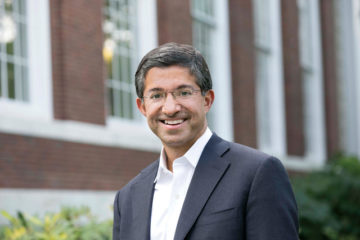John S. Rosenberg in Harvard Magazine:
 THE HARVARD Future of Teaching and Learning Task Force (FTL), organized last year to assess what the University and its faculty members had learned from the pandemic pivot to remote instruction in the spring of 2020 and through the following academic year, released its report today. An ambitious effort, it is meant to spark conversation among professors, deans, and Harvard leaders concerning three overarching subjects, a sort of pedagogical hat trick:
THE HARVARD Future of Teaching and Learning Task Force (FTL), organized last year to assess what the University and its faculty members had learned from the pandemic pivot to remote instruction in the spring of 2020 and through the following academic year, released its report today. An ambitious effort, it is meant to spark conversation among professors, deans, and Harvard leaders concerning three overarching subjects, a sort of pedagogical hat trick:
•sustaining and building upon perceived gains in residential, classroom-based teaching and learning;
•accelerating the creation and use of “short-form digital content”—learning units, exercises, and assessments that differ from traditional, semester-long courses, but are useful for both campus-based classes and a broad range of online formats; and
•exploring Harvard’s prospects for becoming a global educator, using its faculty expertise, pedagogies, and technology to “engage 5 percent of the global population in the shared pursuit of community and learning”—an “aspirational vision” that goes way beyond the 1,650 or so undergraduates enrolled in each new class, or the 22,500 students enrolled in all degree programs of late.
The task force, chaired by Bharat Anand, the vice provost for advances in learning, defined its work in terms of capturing systematically the effects of the changes in teaching and learning forced by the pandemic, applying those to further enhancements, and determining the implications for Harvard’s mission and future learners more broadly.
More here.
